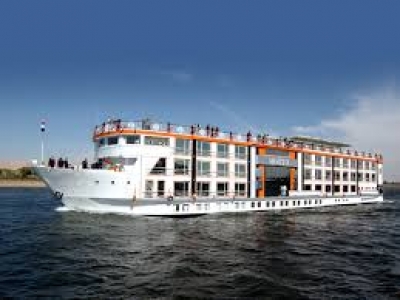
Top 9 Egypt Tour Packages | Magical Egypt Tour Packages | cairo Tour Packages | Alexandria Tour Packages | Great Pyramid of Giza | Egyptian pyramids

Egypt Magical Tour Package of the Pharaohs 6 nights 7 Days
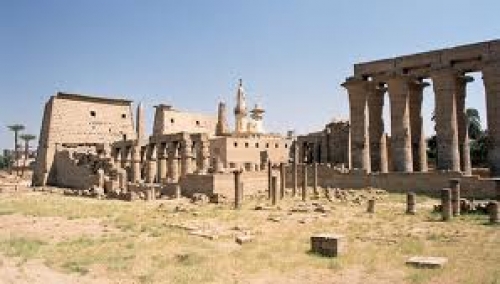
Cario, Luxer Egypt Tour Package
Starting From 755/- Per Pax
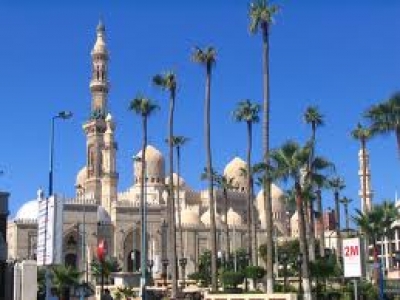
Cairo Alexandria Egypt Tour Package
4 Night 5 Days
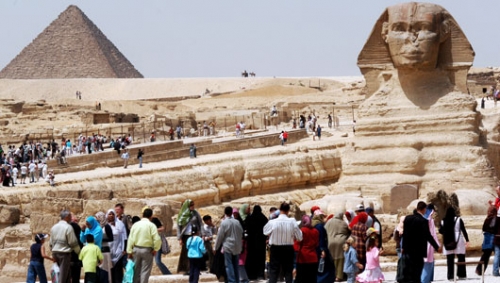
Egypt Tour Package of Cairo Sharm El Sheikh and Nile Cruise
10 night 11 Days
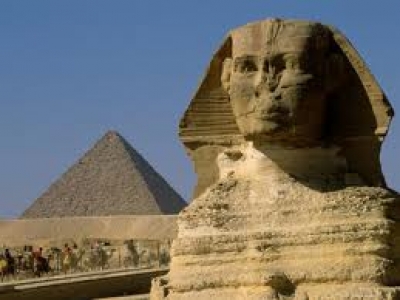
10 Days Egypt Panorama Tour Package
9 Nights / 10 Days
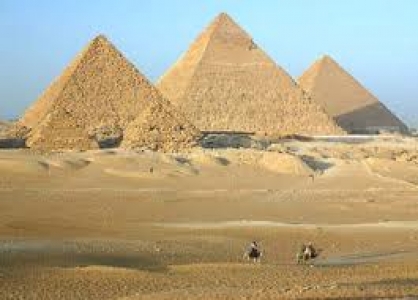
9 Days Wonders of Egypt Tour Package
8 Night 9 days

Luxer Egypt Magical Tour Package
7 Night 8 Days

6 Days Magical Egypt Tour Package
5 Night 6 Days

Cairo & Alexandria Egypt Tour
4 Night 5 Days
Advertisement
Search Package
Most Popular Tour Packages
Top 9 Egypt Tour Packages | Magical Egypt Tour Packages | cairo Tour Packages | Alexandria Tour Packages | Great Pyramid of Giza | Egyptian pyramids
Egypt is a fantastic choice for a package holiday. One of the oldest civilisations in the world, it has a rich culture and spell-binding history, as well as year-round sunshine, miles of sandy beaches and warm crystal-clear waters.
The main resort on the Sinai Peninsula is Sharm el-Sheikh, although those in search of a more laid-back holiday will enjoy the smaller resorts of Dahab, Nuweiba and Taba.
Sharm el Sheikh, a popular favourite with holidaymakers, is set in a beautiful landscape of granite mountains and desert surroundings, with fantastic beaches and sea reefs. A well-developed resort, there is a wide selection of amenities and activities, including discos, casinos, nightclubs and golf courses, not to mention horse and camel riding.
Best Time to Visit Egypt
The best time to visit Egypt is perhaps between the months of November and March, when the daytime temperatures hover in the region of 15 - 30 degrees Farenheit, making it very pleasant for sightseeing forays. At night the temperatures do fall but it never gets very cold and uncomfortable. The only thing is that if you plan on swimming at the beaches on the Egyptian coast, the water maybe too cold during December and February. Winter is also peak tourist time, so hotels maybe a bit on the expensive side. But having said that, it still is the most pleasant time to be in Egypt.
Egypt is hot and dry for the rest of the year, and summer temperatures in the desert and places like Aswan can reach up to 50 ºC. Apart from Alexandria, Egypt receives very little rainfall.
So plan a winter visit, especially if you are unused to very high temperatures.
How to get to Egypt
By Air: International flights come in to Egypt from many countries of the world. There are also charter flights to Cairo, Aswan and Luxor. Please note that flights booked from Egypt to the rest of Africa can be quite expensive.
By Road:
From the Middle East:
There are two main land crossings from Israel to Sinai in Egypt—one at Taba on the Gulf of Aqaba and the other at Rafah on the north Sinai coast. One can also hop on to a bus from Tel Aviv to Cairo—there are buses on all days of the week except Saturdays.
From Libya:
There are buses running from between Cairo/Alexandria and Benghazi or Tripoli.
By Sea
From Greece & Cyprus: There are ferries from Rhodes in Greece and Limassol in Cyprus to Alexandria. This is only available in the summer.
From Lebanon, Turkey & Syria: One can take ferries from Antalya in Turkey, Beirut in Lebanon and Lattakia in Syria to Alexandria.
From Jordan: Ferries and speedboats cross over into Egypt from Jordan—the main crossing point is Aqaba in Jordan and Nuweiba in Sinai.
From Saudi Arabia: There are direct ferries from Jeddah to Egypt—these take about 36 hours. It gets very crowded indeed during hajj (the pilgrimage to Mecca), so do be careful to book in advance. If you can, avoid travel at that time.
Places to Visit in Egypt
Egypt’s capital, Cairo, is a seething megalopolis whose chief sightseeing appeal lies in its bazaars and medieval mosques, though there is scarcely less fascination in its juxtapositions of medieval and modern life, the city’s fortified gates, villas and skyscrapers interwoven by flyovers whose traffic may be halted by donkey carts. The immensity and diversity of this “Mother of Cities” is as staggering as anything you’ll encounter in Egypt. Just outside Cairo are the first of the pyramids that range across the desert to the edge of the Fayoum, among them the unsurpassable trio at Giza, the vast necropolis of Saqqara and the pyramids at Dahshur. Besides all this, there are superb museums devoted to Ancient, Coptic and Islamic Egypt, and enough entertainment to occupy weeks of your time.
However, the principal tourist lure remains, as ever, the Nile Valley, with its ancient monuments and timeless river vistas – Nile cruises on a luxury vessel or a felucca sailboat being a great way to combine the two. The town of Luxor is synonymous with the magnificent temples of Karnak and the Theban Necropolis, which includes the Valley of the Kings where Tutankhamun and other pharaohs were buried.
Aswan, Egypt’s southernmost city, has the loveliest setting on the Nile and a languorous ambience. From here, you can visit the island Philae temple of Isis and the rock-hewn colossi at Abu Simbel, or embark on a cruise to other temples around Lake Nasser. Other sites not to be missed are Edfu and Kom Ombo, between Luxor and Aswan, and Abydos and Dendara, north of Luxor.
Besides monuments, Egypt abounds in natural wonders. Edged by coral reefs teeming with tropical fish, the Sinai Peninsula offers superb diving and snorkelling, and palm-fringed beaches where women can swim unmolested.
Resorts along the Gulf of Aqaba are varied enough to suit everyone, whether you’re into the upmarket hotels of Sharm el-Sheikh, nearby Na’ama Bay or Taba further north, or cheap, simple living at Dahab and Nuweiba. From there it’s easy to visit St Catherine’s Monastery and Mount Sinai (where Moses received the Ten Commandments) in the mountainous interior. With more time, cash and stamina, you can also embark on jeep safaris or camel treks to remote oases and spectacular wadis.
Egypt’s Red Sea Coast has more reefs further offshore, with snorkelling and diving traditionally centred around Hurghada, while barely touched island reefs from Port Safaga down to Marsa Alam beckon serious diving enthusiasts. Inland, the mountainous Eastern Desert harbours the Coptic monasteries of St Paul and St Anthony, Roman quarries, and a host of pharaonic and prehistoric rock art, seen by few apart from the nomadic Bedouin.
While the Eastern Desert is still barely touched by tourism, the Western Desert Oases have been on the tourist trail for forty years and nowadays host safaris into the wilderness. Siwa, out towards the Libyan border, has a unique culture and history, limpid pools and bags of charm.
Travellers can also follow the “Great Desert Circuit” (starting from Cairo, Luxor or Assyut) through the four “inner” oases – though Bahariya and Farafra hold the most appeal, with the lovely White Desert between them, the larger oases of Dakhla and Kharga also have their rewards once you escape their modernized “capitals”. And for those into serious desert expeditions, there’s the challenge of exploring the Great Sand Sea or the remote wadis of the Gilf Kebir, whose prehistoric rock art featured in the film The English Patient. In contrast to these deep-desert locations are the quasi-oases of the Fayoum and Wadi Natrun, featuring the fossil-strewn Valley of the Whales, diverse ancient ruins and Coptic monasteries.
On the Mediterranean, Egypt’s second city, Alexandria, boasts a string of beaches to which Cairenes flock in summer, and excellent seafood restaurants. Despite being founded by Alexander the Great and lost to the Romans by Cleopatra, the city today betrays little of its ancient glory; however, its magnificent new library, featuring statues raised from the sunken remains of Cleopatra’s Palace, and the Lighthouse of Pharos (which divers can explore) are restoring an air of majesty. Famous, too, for its decadence during colonial times, Alexandria still allows romantics to indulge in a nostalgic exploration of the city immortalized in Durrell’s Alexandria Quartet, while further along the Mediterranean coast is the World War II battlefield of El-Alamein. For divers, the waters off Alexandria offer an array of sunken cities and wartime wrecks to explore.
The Nile Delta, east of Alexandria, musters few archeological monuments given its major role in ancient Egyptian history, and is largely overlooked by tourists. However, for those interested in Egyptian culture, the Delta hosts colourful religious festivals at Tanta, Zagazig and other towns. Further east lies the Canal Zone, dominated by the Suez Canal and its three cities: Suez is grim, but a vital transport nexus between Cairo, Sinai and the Red Sea Coast; Port Said and Ismailiya are pleasant, albeit sleepy places, where you can get a feel of “real Egypt” without tripping over other tourists.
Shopping in Egypt
Egypt can be a shopper’s delight - exquisite carpets, typical Egyptian historical reproductions and artifacts (the best ones are found in Luxor and Aswan), papyrus wall hangings, dates and dry fruits, spices and prayer beads, colourful fabric and clothes, fabulous jewellery. Its an endless list.
The cities have their own quaint bazaars, the most famous of which is the Khan-el- Khalili in Cairo. Walk down the crowded lanes and do the expected thing - bargain your way through quaint shops selling a host of quaint dreams. This trip is not just a shopping experience – savour the flavours of a different world. At the modern shopping malls you can shop in airconditioned comfort and pick up wall hangings and the famous Egyptian rugs and carpets among other things.
Shopping hours – remember the summer siesta.
Summers : 9 am to 12.30 pm and then 4.
Travel Tips for Egypt
How to get the most energy on your trip - Be a Power-Traveler - Eat Regular Snacks!
When shopping trips and classes get too exciting and the day drags out longer, travelers often forget meals and end up with low blood sugar which means that they can find the fast pace of Cairo agitating and get the "low sugar grumpies"! So - take some almonds and raisins along in your bag, plus a few pieces of fruit. Need a protein fix?
Try vacuum packed envelopes of tuna that you can eat with a plastic fork from the packet, or take a few boiled eggs from the hotel breakfast. Coffee fix? Bring small a thermos with you and make the coffee in your hotel room. You'll be glad you did at around 4pm, when you are at the bazaar and need to spike your brain up for vital costume selection, when it all gets too overwhelming! Add your fruit/nut mix and you will be powering ahead when others are flailing!
How to be comfortable and relaxed - Wear Comfortable and Appropriate Shoes
The Bazzar streets are sandy and full of pebbles, so wear good walking shoes. If you think you'll be busy trying on costumes, take some flip-flops in your bag. At the Pyramids and Giza, Museum and sights, wear good closed sports shoes. Save the high heels for nightclubs and dinner rendevouz, or buy new in Egypt!
Stay connected and save money on phone bills - Get an Egyptian Sim Card for your Mobile Phone
Leave your sim card at home in an old phone, with someone who can take calls. Get an Egyptian sim card in Cairo, they are cheap, plus some credit. You'll feel safe - store Egyptian numbers on your phone. Sms's home cost local prices.
Great costumes with no guess work - Want your Perfectly-fitting Bedlah Tailor Made?
Take your own pre-bought bra that fits perfectly, but one size larger than needed. This saves bra problems. Provide your bust,waist, hip, skirt length measurements on a pice of paper in Arabic - get someone to help you and make a few copies.
Pack light as it there is great Shopping in Egypt! You can buy clothes, shoes, costumes, rugs, trinkets, bronze light fittings, exotic home decor, cotton, more costumes, more shoes, bags, sugar wax, henna, spices, apple tobacco, perfume bottles, perfume oils, Arabic music, dvds, shishas, fabrics, weavings, ramadan tent fabric and so much more!
Taxis should be negotiated before getting in, always cut them down by half. If they don't agree, just say "shokrun" and close the door. Either they will agree to your price or the next one will.
Food at restaurants and hotels often carries an additional 17% service charge and tax, often this is not shown on the menu, so be sure to add it if it is written in fine print at the bottom of the menu. Water - always carry a bottle of water with you, avoid drinking from the taps.
Dress - in conservative areas of Cairo, wear long sleeves and trousers or longish skirts. But the trendier shops, clubs and restaurants feel free to wear t-shirts and short sleeved dresses - its quite westernised.
Bargaining - practice your Arabic, smile, have a joke with the shop owners before you start bargaining. When they give you a price, cut down to a third and say - "but its much cheaper in that other shop". If you still don't get your price, say thank you and walk away. This usually works. The trick is to never look too interested. Try your hardest not to gush over jewellery or magnificent sequins costumes.
What to wear:
Dress comfortably, loose cotton clothes are preferable - tshirt, cotton pullover and cotton trousers, track pants or baggy jeans. Take some socks, eyeshades, a small neck pillow and a pashmina-type wrap. This is good for covering your face if the air in the plane is chilly or if you want to sleep. Try not to wear make-up. If you are a contact lens wearer, make sure to wear glasses as the cabin air is quite drying. Some travelers take eye lubricant drops. Travel pillows are good for sleeping breaks.
Light hand carry:
Less in your hands is better, so take a small hand carry with a bottle of water, face moisturiser, a good book, hairbrush, pen, notebook, passport/tickets, purse. Because coffee/tea is dehydrating, you feel better if you drink herbal teas, ginger or chamomile are the best for travelling. Bring your own herbal tea bags.
At Cairo Airport
If you have a visa, line up at the passport counter. If you need to purchase a visa, go to the airport bank, buy two stamps for $15 USD then take them with your passport to the passport counter. BTW, the banks at the airport use the daily exchange rate, so its always worth changing some money there. They exchange Aud, Euro, Yen, Sterling and USD. They don't exchange Singapore dollars or Ringett. Collect luggage and pass through customs - bags are sometimes searched. If you are traveling alone and need a taxi, ask for a registered one with a receipt. It should be no more than 80 LE (Egyptian pounds).
Places to stay in Cairo
5 star - Marriot Zamalek, Grand Hyatt, Four Seasons, Ramses Hilton, Nile Hilton, Movenpick, Sheraton
Mid range - President hotel, Pyramisa hotel, Oberoi, Oasis Pyramids, Cosmpopolitan Hoetl, Shepheard Hotel
Budget - Horus hotel, Ciao Hotel, Victoria Hotel, Khan el Khalili Hotel, New Garden Palace











